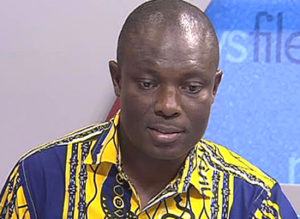Outstanding arrears could be more than GH¢7b – Kwaku Kwarteng

Mr Kwaku Kwarteng, Deputy Minister-Designate for Finance has maintained that the outstanding arears the New Patriotic Party(NPP) administration inherited from the NDC government could be more than GH¢7 billion.
He said there were still many outstanding obligations of government but those that had come to the attention of the Ministry of Finance was what was reported.
Mr Kwarteng made the statement when he appeared before the Appointment Committee of Parliament in Accra.
The nominee who is also the Member of Parliament (MP) for Obuasi West is among the last batch of four ministers and 50 deputy ministers to be vetted by the Appointment Committee.
Mr Kwarteng also debunked claims attributed to the Vice President Dr Mahamudu Bawumia that the GH¢7 billion was missing.
He explained that most of the arears occurred outside the Public Financial Management Framework and that they were outstanding obligations that the government must satisfy.
When asked about what account for the so many arears in the Common Fund, NHIS and how they intend to deal with it, Mr Kwarteng explained that there were so many rigidities in the public finance management space because central government revenue was encumbered and the minister had the opportunity to examine priorities and direct resources accordingly.
He urged the government to ensure that its borrowing for the year did not worsen the financial situation of the country.
On bringing down interest rates of financial institutions in the country, Mr Kwarteng stated that for interest rates to come down, the government had to reduce its presence on the domestic money market, adding that the measures taken by the current NPP administration was to deal with public expenditure so that ultimately government would not be competing with the private sector on the domestic money market.
Mrs Abena Osei-Asare, Deputy Minister-Designate for Finance who also appeared before the Appointment Committee stated that government would block the leakages in the informal sector by coming up with the national identification system to bring those outside unto the system to contribute to the development of the country.
She said government was also going to deploy technology for the National Addressing System to ensure that property were captured for them to pay the right taxes to the state.
She maintained that the number of banks in the country was reasonable and the influx of the Nigerian banks had helped to ensure competitiveness in the banking system.
Mr Charles Adu Boahen, another nominee for the position of Deputy Minister of Finance who appeared before the Appointment Committee stated that the reason for the continuous use of cash transaction was as a result of the level of the informal sector.
He said one of the ways to deal with the problem was to promote the use of mobile money for the purchase of goods and services in the informal sector since there were already eight million accounts holders.
He said mobile money could also be used to bring in the large sector of the unbanked population into the formal sector.
Mr Adu Boahen also noted that there was nothing wrong with a country having debts but the problem was the cost and the levels of debts.
He called on the country to market itself properly on the international financial market to reduce the country’s risk levels.
Source: GNA
